French midterm
1/72
There's no tags or description
Looks like no tags are added yet.
Name | Mastery | Learn | Test | Matching | Spaced |
|---|
No study sessions yet.
73 Terms
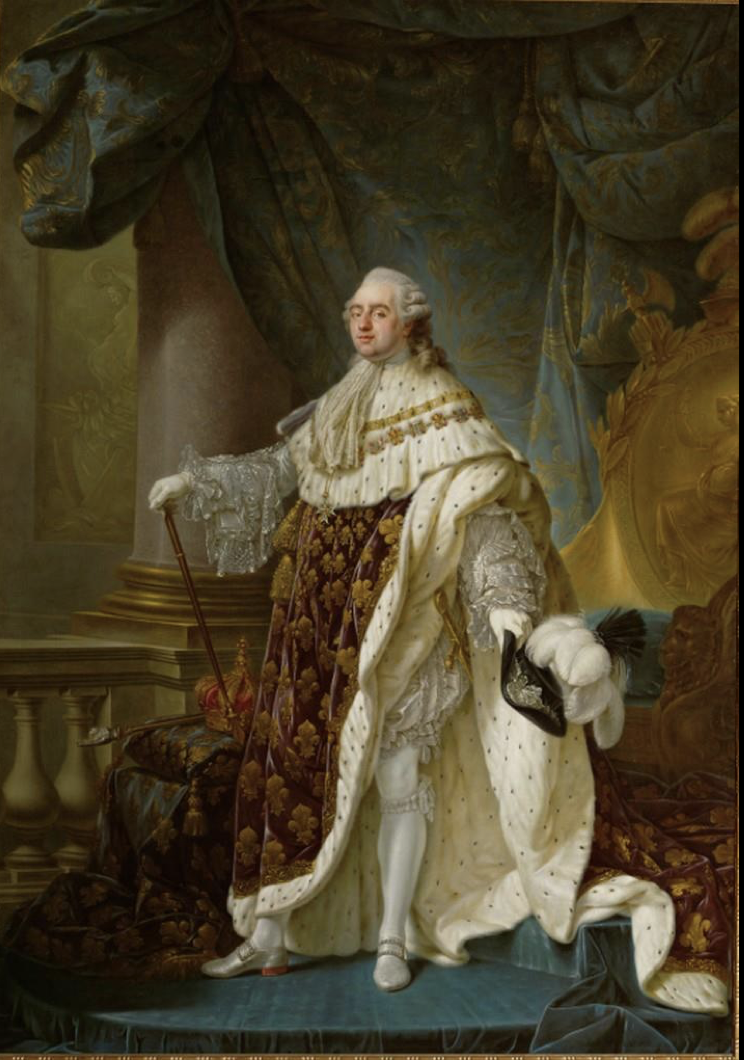
Portrait of King Louis XVI
Antoine-Francis Callet
1779
was legally copied by artists
replica’s
first point of reference for what the king looked like as most people wouldn’t have seen him in person
dressed in the highest end-most formal clothing
velvet, expensive and valued
lace produced in enlgand
ermine - used for sovereigns across europe
fluer de lis
French symbolism
hand of justice
represents justice upheld by the monarch
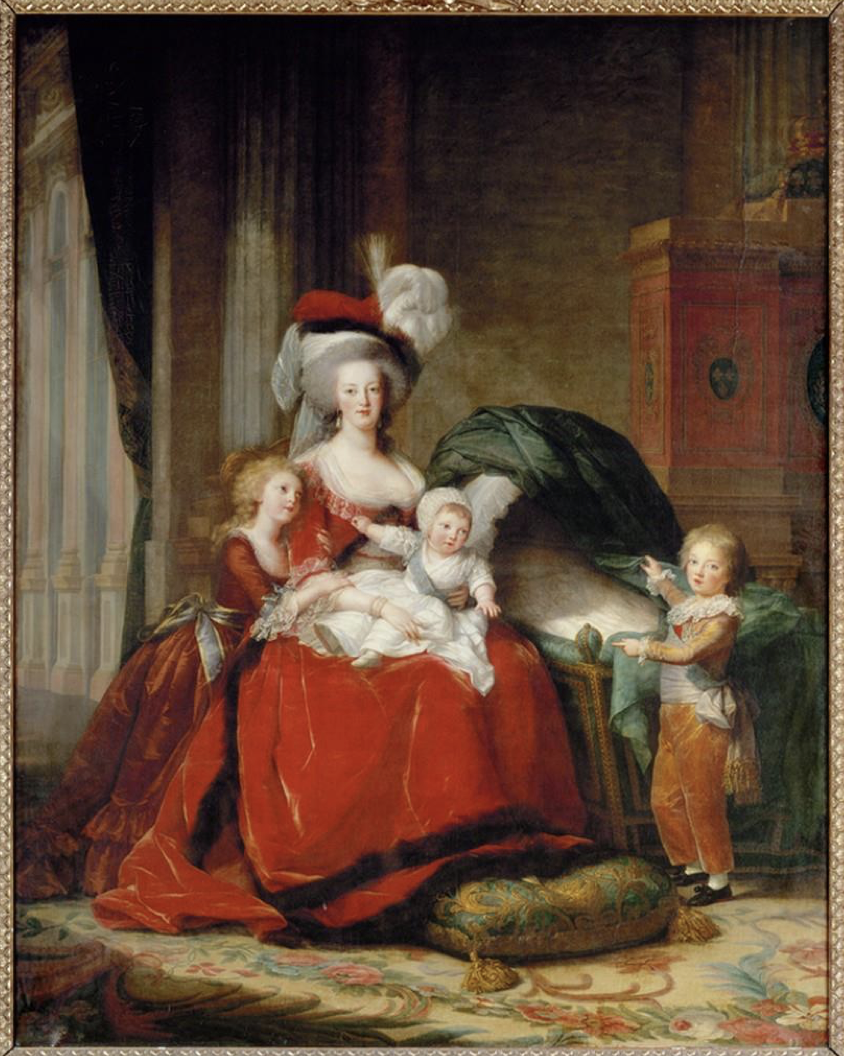
Queen Marie-Antoinette and her Children
Vigee-Lebrun
1787
became a common patron of Lebrun
focus on the maternal body of the queen, and what this symbolizes in relation to the continuation of the monarchy
lost females child represented in the crib - child lost during the creation of the artwork
at chateau de versailles
where the monarchs resided- away from poverty and struggle
shows sable - a fur from Russia
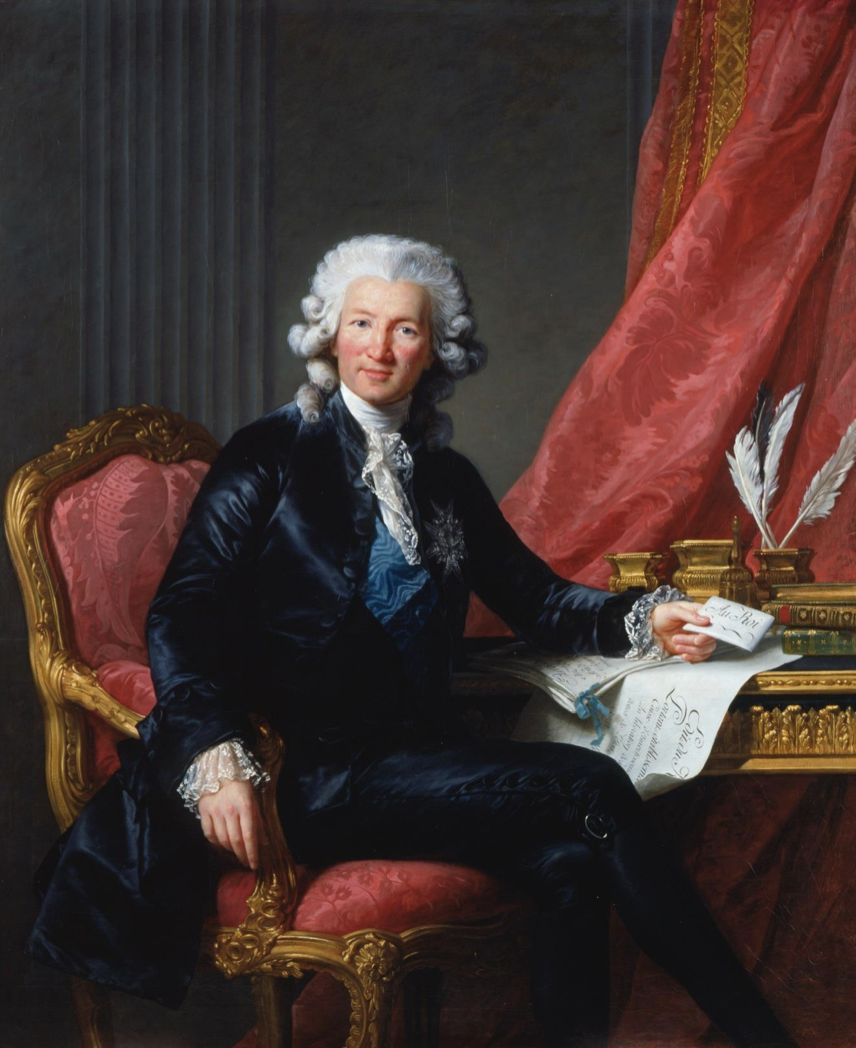
Portrait of Calonne
Vigee-Lebrun
1784
portrait of the patron - a person of rank
similar lighting to callet’s work
pin shows rank of individual
noble rank and employment of the crown granted permission to be depicted in such finery
controller general
was the head of finance, granted position in 83
is writing a letter to the kind, about national debt, prob accumulated from the last war (anglo-french)
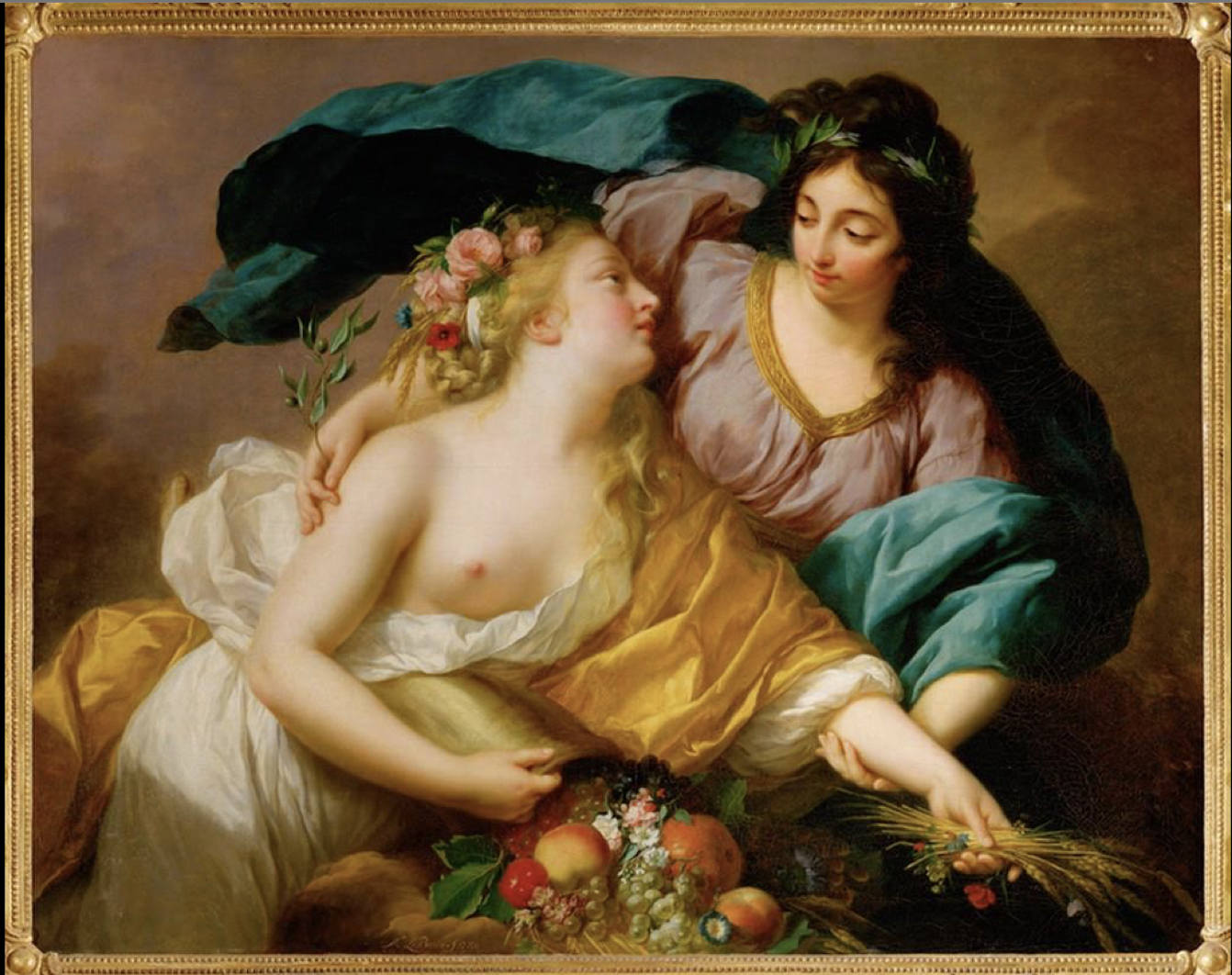
Peace Bringing Back Abundance
Vigee-Lebrun
1780
before the salon was redfined- meaning she coudln’t show her work there
was charged for selling art out of her home
joined a smaller guild
the academy of saint luke
allegorical/mythological subject
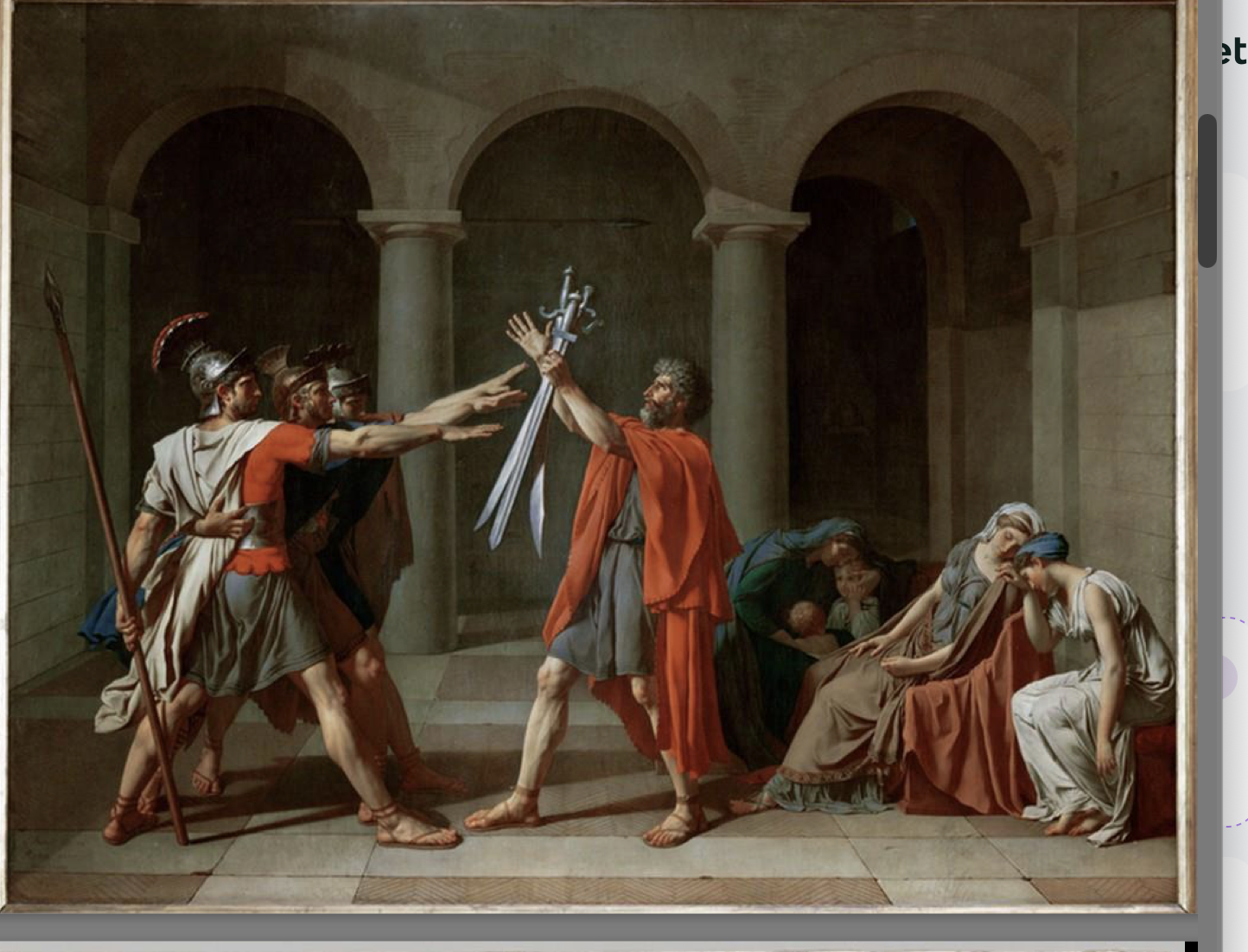
The oath of the Horatii
Jaques Louis David
1784
depicts a scene from roman history
commissioned by king l
brothers sworn in oath to defend Rome
commissioned to promote support from the French state/monarchy
David made the painting really big
history painting was the highest form of painting
trained at the royal academy
academic artist
neoclassicism
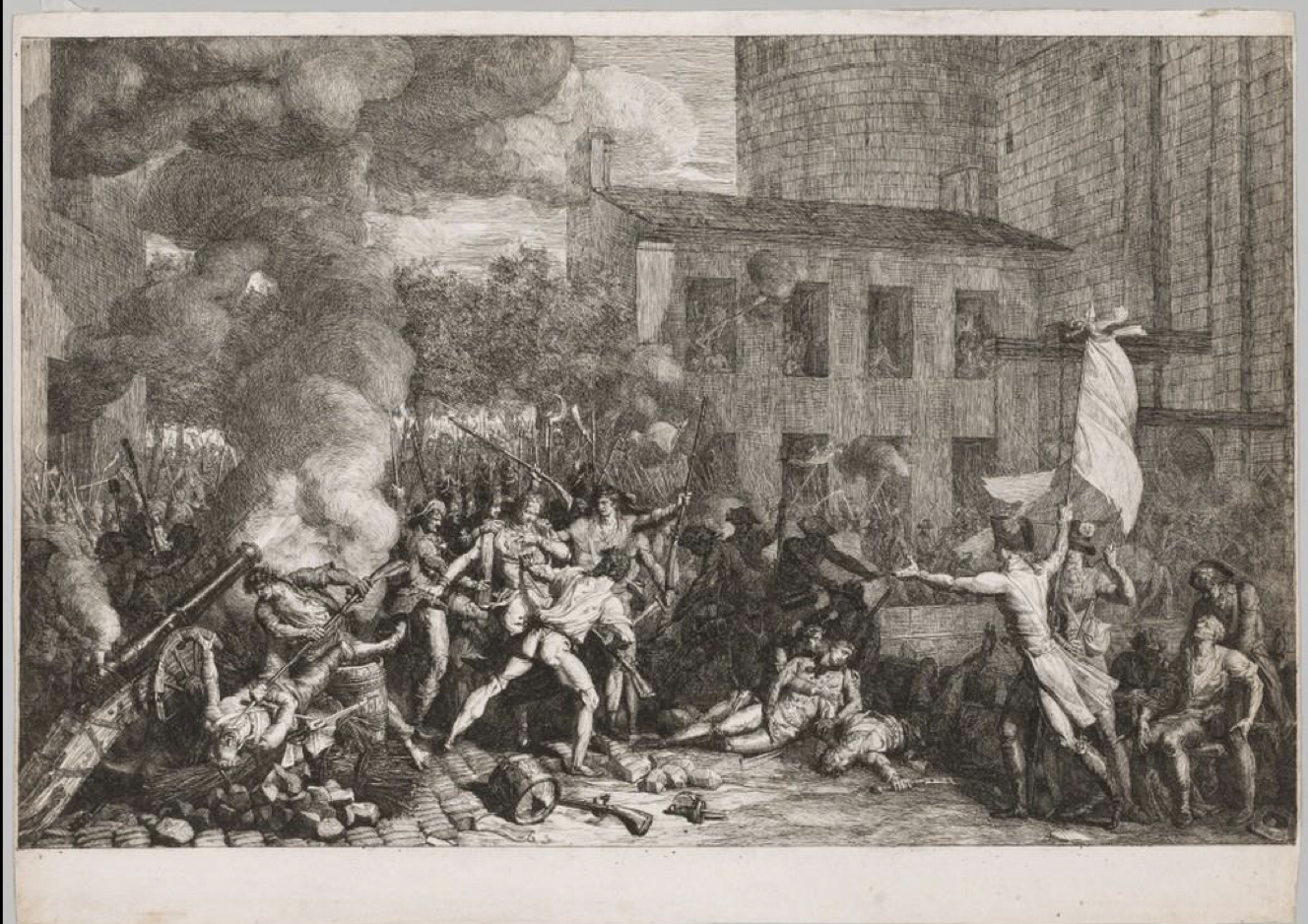
Storming of Bastille
Charles Thevenin
1789
prompted Emigres
scene of the acutal attack
intentional use of print making
allows for y least 100-200 copies
example of artist using contemporary politics as substance for art, using traditional mediums
was an eye witness to the event
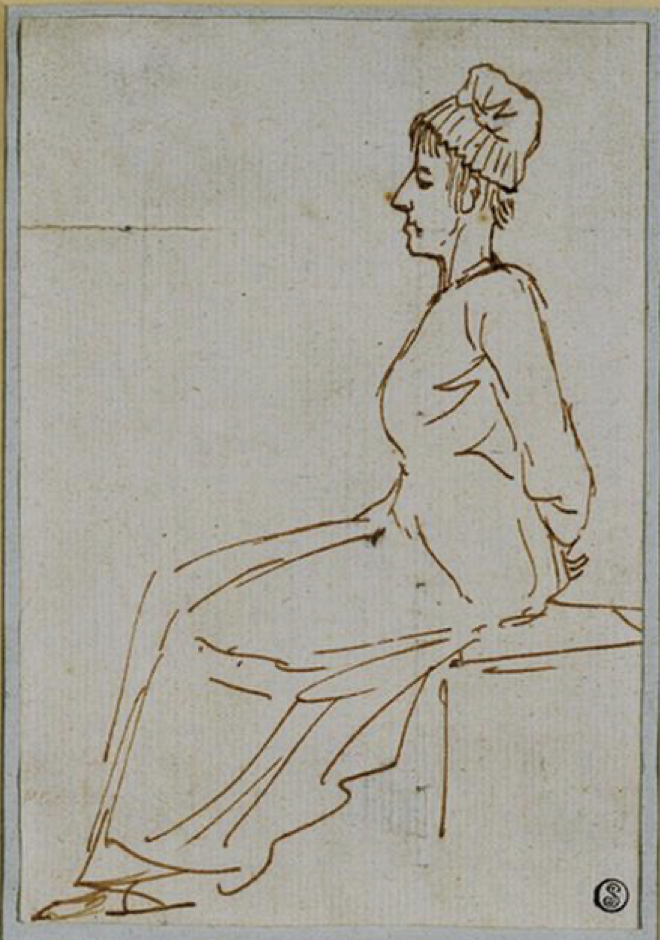
Marie Antoinette on the way to the Guillotine
Jaques Louis David
1994/93
a sketch, capturing a spontaneous, fleeting moment.
royal / regal representation vs the stripping of all that.
important info
guillotine
regicide
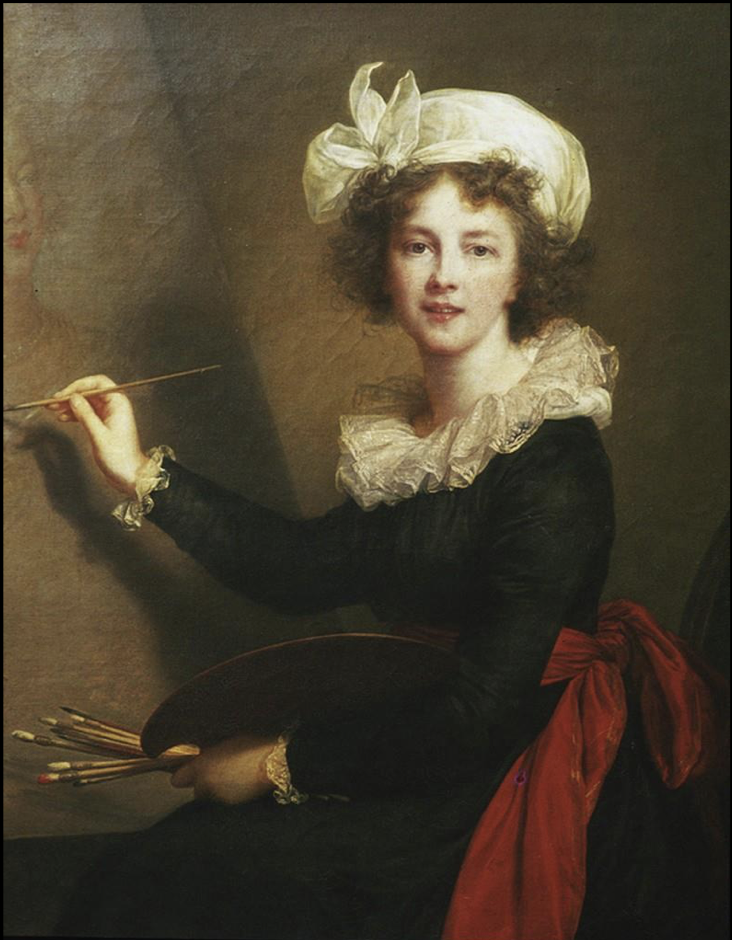
Self - Portrait
Vigee - Lebrun
1790
self portraits were to display talent, and show nobility their skills. Entice them to commission
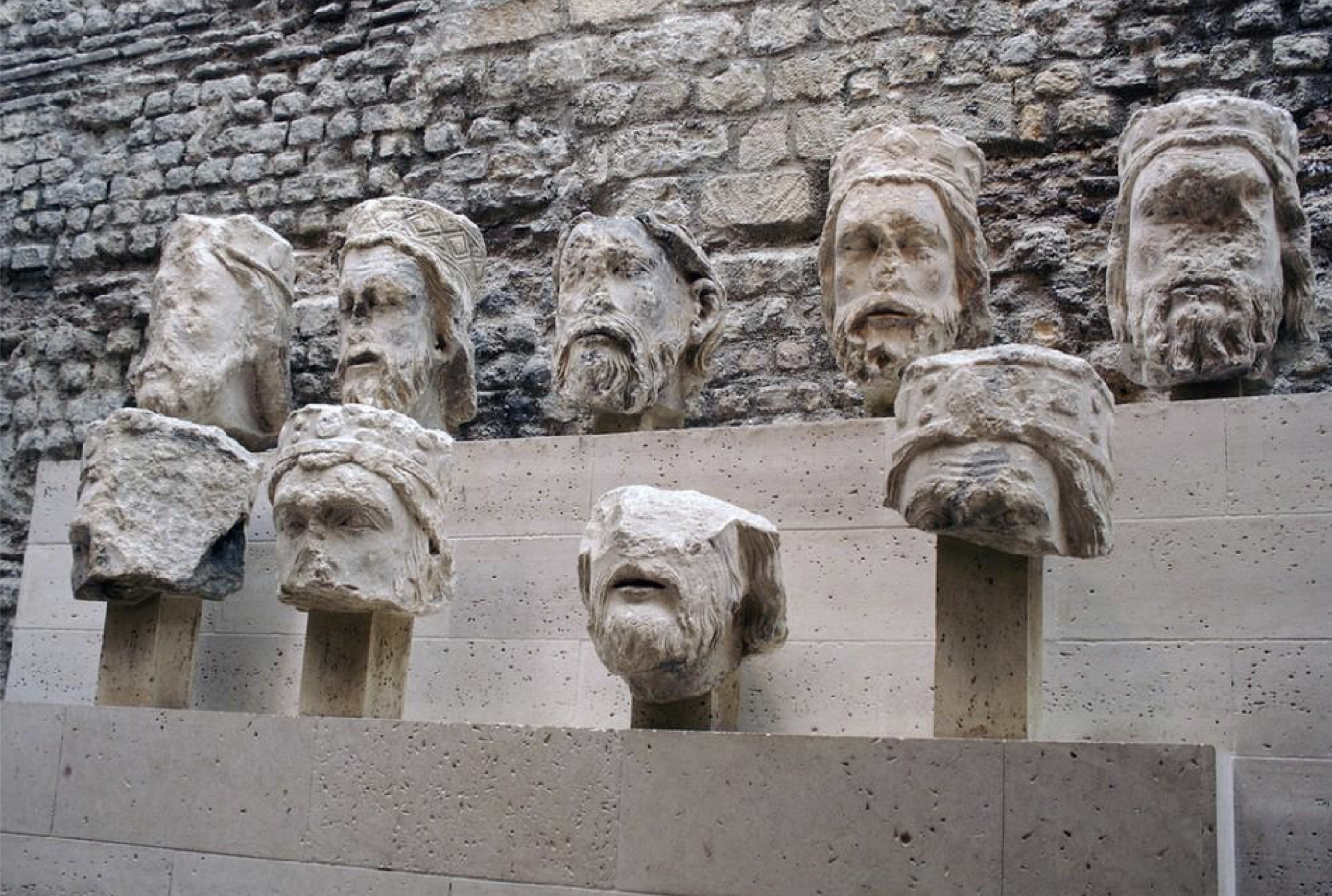
Gallery of Kings
1793 - shorter after the death of k.louis
Notre Dame / Temple of Reason
iconoclasm- attack on religious architecture
religious spaces were being secularized, and was renamed temple of reason .
heads were buried and found pretty recently
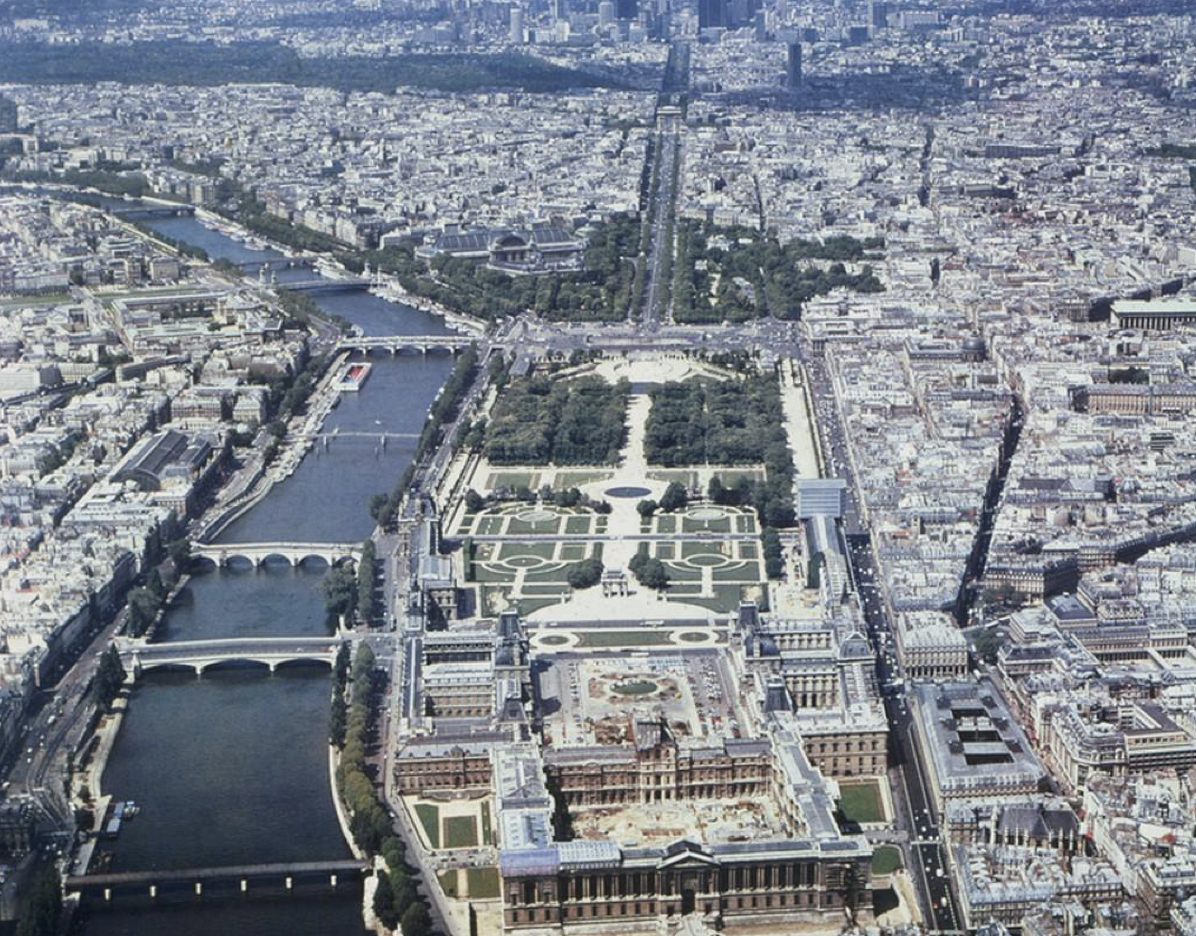
View of The Louvre in 1793
known as the museum of the republic during the convention
became publicly accessible during this time
As france expanded, they took art - Artists and scientists were sent w/ the military with lists of what they wanted to take. the collection of the Louvre expands enormously during this period
example - Ghent altarpiece
taking works like this was a political mission, the Louvre becomes a trophy case full of their trophies of conquest.
“the works needed to be freed, and brought to France so that the people of liberty can see them in a proper space.
narrative of heroism and liberation
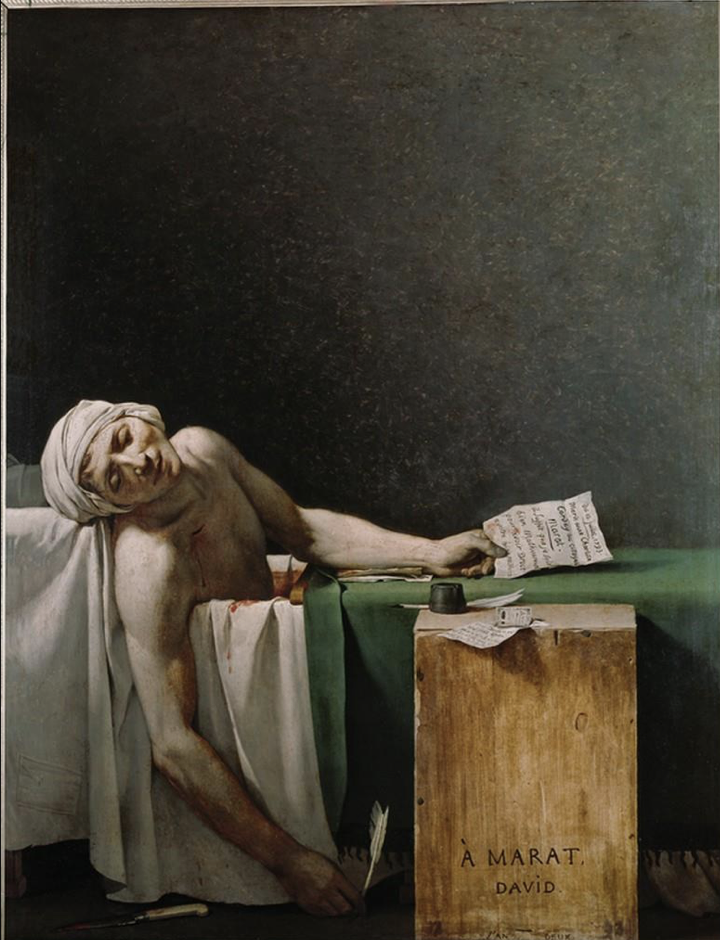
The Death of Marat
David
1793
Marat was assassinated by someone in an opposing political group
Jacobins vs girodin
symbolism in the painting of how he died and his life
bath due to skin condition
someone came and stabbed him while in bath
cut on his body
blowd on the tub
was in the middle of task etc…
became known as a secular martyr
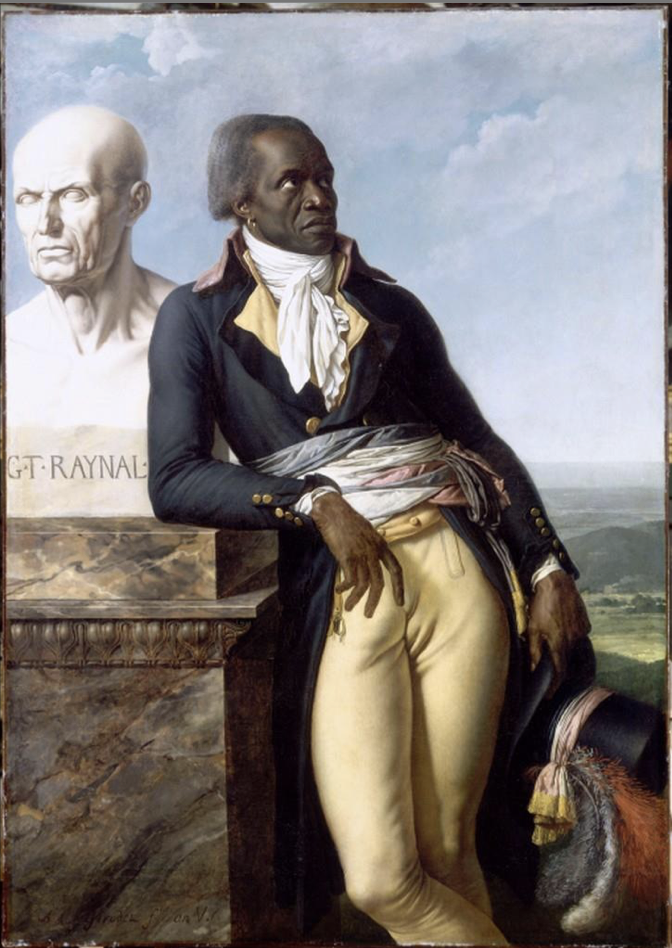
Portrait of Citizen Belley
Girodet
1797
is fitted in clothing fit for a deputy
the bust in the back is Raynal, a philopsher who had just died in 96
was an advocate for the abolition of slavery and was a critic of Christianity
Belley is leaning on this bust, metaphorically leaning on these ideas.
in the background we see Haiti and the places set on fire in the back.
was elected during the convention (1792-95) but this work was made during the period of the directory (95-99)
comes from Haiti, was was able to purchase his freedom
joined the army to climb the social order
when slavery was abolished (1795), he was chosen and elected to the directory council
artist fought for it to be shown under this name and not as portrait of a black man - was shown at the salon
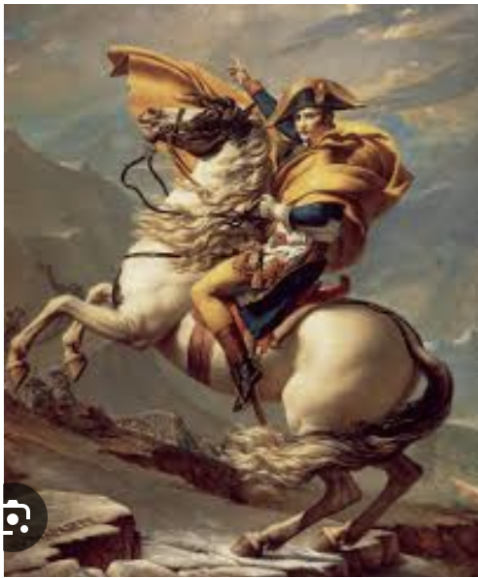
Bonaparte crossing the Saint Brenard Pass
David
1801
equestrian portrait - symbolizes full control over a nation
this is a sort of reconfigured representational painting. the clothes, horse and situation are historically accurate in some way. The clothes are clothes from battle - not travel. The horse was a gift from the Spanish king. and he really did cross the Bernard pass but on a donkey not a horse, and in travel clothes.
this exhibits the construction of a narrative
lead to replica’s being made
perpetuating the narrative
painting puts more important detail in the central access, with an asymmetrical composition to show dynamism
shows off David’s skill to be able to paint such a successful horse portrait, anatomically correct and dynamically moving.
idealized representation of Napoleon
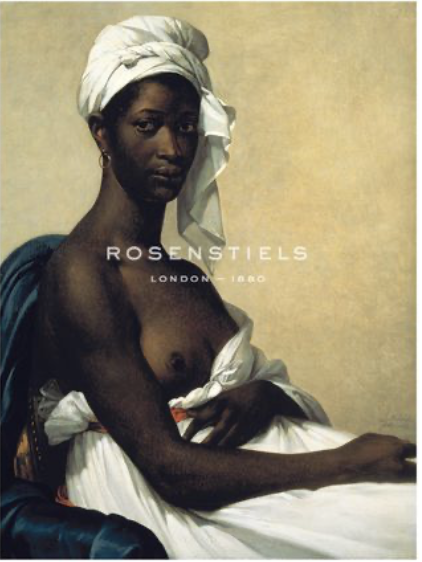
Portrait of a Black Woman / Portrait of Madeline
Benoist
1800
artist engaging with contemporary issues affecting society
was originally shown titled as “portrait of a black woman”
example: not given the same treatment as citizen Belley
there are no primary sources on this piece so we have to use our skills at analysis to figure it out - we can use it to determine the social political context of the time
the woman was brought to mainland France, meaning she is technically a ‘freed’ slave. she was brought for Guadalupe
she was a domestic worker is brothers home, the work was retitled to situate the sitter with the work
this is technically a representation of s specific individual but at the time it stands more in place as a portrait of a category of people
think about agency, the colours, the partial shown breast, scars on hand, skills of artist etc.
Model
the sitter for a painter
what kind of agency do they have
think about portrait of black woman painting
Reinstitution of Slavery
1802
under Napoleon (1799-1804)
Agency
relating to the kind of a say a commissioner or model might have in how the subject is portrayed in a painting or work of art
Motif
Repetition over time - a reoccurring element
equestrian portrait
painting with a horse - more specifically it a horse with a sitter
symbolizes full control
Replica
artists making copies
example: Bonaparte crossing the Bernard pass
contributes to the perpetuation of a narrative
Sèvres
Objects / luxery objects
example": the Vase ‘arrival of the Italian artworks in Paris
depicts narrative scenes and how they connect with the treaty of tolentino negoitiated during the period of the directory (1796)
Napoleon Bonaparte
First Consul (1799-1804)
Egyptian Campaign
Bloodless Coup
Egyptian Campaign
1798-99
ended the same year as the directory
Notable role as general for Napoleon
when he returns he has a lot of military support, and many discussions with folks voer their contentions of the current government and theirs a coup
resulting with the creation of The Consulate, and the first Consul (Napoleon)
Emigres
Vigee-LeBrun is one
refers to people who fled France around the time of the Storming of Bastille (89). they become self-imposed emigres. The French government revoked all citizenship and property from the emigres.
Vigee-Lebrun
Painter
an emigre
she fled with her daughter, leaving a husband behind. Painted her self portraits as a way of displaying her talent, She became very notable and worked as a professional artist. She divorced her her husband so they could keep their property, and eventually she came back to France and got their citizenship back. She became a member of several academies throughout Europe.
self portrait
a means for artists to show their skills to nobility.
monarchy would often commission these - this is how other nobles would often see them.
The Academy of Painting and Sculpture used to be…
the Royal Academy of Painting and Sculpture
with the executions of the king and queen(1793), the royal academy becomes the ___.
guillotine
Place de la Guillotine
the execution of Antoinette and Louis, and all followingg theirs were killed by guillotine and this is where (1793)
was renamed place de la concord
a new method of execution, quicker and more certain. Would result in immediate death.
Regicide
the execution/murder of monarchs / royalty
example: the execution of Antoinette and Louis, in 1973 - a decision made by the national assembly
The Republic / The First Republic
national assembly becomes a new entity called the republic following the deaths of Antoinette and Louis
1792-1804
Constitutional Monarchy
takes place for roughly a year ; 1791-92
the royal family tried to run away because they could feel their power slipping. king and queen were caught and executed.
contestation / contested document
something that gets voted on
Declaration of the Rights of Women and the Female citizen
Olympe De Gouges
1791
in response to the 89
written in response to the Declerations of the rights of man and the citizen
an individual representing a larger voice
she did have the backing of one of the groups in the National Assembly - did not get enough votes to pass
both sexes can occupy land
females should have the right to the national assembly
mainland france
all here are technically not slaves
you were considered liberated and not eslaved if brought here
slavery refers to their colonies - primarily in the Caribbean
National Assembly
the National Assembly evolved from the estates general (happens around the time of the constitution)
a place where different folks had different views and opinions
the king had to work with and communicate through the National Assembly.
Salon
was redefined in 1791 (same time at the constitution)
independent artists are now allowed to submit
you no longer have to be a part of the royal academy to submit
this is a big social change directly related to the art world
government exhibition every two years
salon hanging- floor to ceiling
portrait of calonne and oath of the horatti both shown in 85
The Constitution / The First Constitution
The declaration of the rights of man and the citizen is absorbed into the constitution.
redefines the salon
the National Assembly developed
a political body is formed ^
monarchy is losing power / split with the constitution
Decleration of the rights of man and the citizen
Is a landmark document
drafted and presented to the king
becomes the constitution
man
25+ and paying taxes
taxes have to be paid directly to the government
means you have to own property
this document creates a operations of those who have political rights
written by third estate
promotes freedom of property, security, resist oppression, voting of officials, and liberty
Abolition of Slavery
1795
think c.belley painting.
the convention
1792-95
proletarian associations
from the first republic to the directory (first republic refers tp the period following the death of k.louis)
first political party
the directory
1795-99
bourgousiseas associations
reign of terror
1792/3- 94
lots of violence takes place - exacerbated by food shortages
the committee of public safely was created to control this violence
execution of folks against republicanism
legislation on catholicism
1792
dissolution has happened in 1790
September massacres
uprising of people against the legislations on catholicism
dissolution of religious orders
happens during constitutional monarchy
1790
The first republic
time period following the death of King Louis
convention to consulate 1792-1804
iconoclasm
breaking of an image
example of the gallery of kings
attack on religious architecture
didactic panel
informative sign/paper with details of the work
royal
office of the king/queen
monarch
refers to the persoa
absolute monarch
refers to the perception that the sovereign in appointed by god
sovereign
ultimate leader/rulae in government
house of bourbon
French royal family
ex. hereditary rule
positions and titles passed from parent to child
primogeniture
rule of law
when law is the ultimate authority
no real rule of law in France during the Bourbon reign
monarch is the ultimate authority
civil law
codified law based on written set
case law
law based on precedent set by other cases
Ancien Regim
Meaning old regime
monarchical power pre revolution
portraiture was a common way for monarch to represent themselves
patron
the eprson who pays for a work of art
typically the one represented in the work of art, with some exception
portrait of calonne - vigee Lebrun
marie antoinette - vigee Lebrun
academic art
work made by academician s
usually worked in distinguished themes and mediums, oil paint and history paintings
use of perspective, came out of tradition from the renaissance
neoclassicism
renaissance= rebirth of greek and roman themes/production
echoes back to end of 18th century belief in a moral system on governance - culture to reinforce virtue and moral value
Chateau de Versailles
opulant royal palace, about a day ride form paris
this is where the king and queen resided - away from the poverty and struggle of France
conviction of the estates general
1789
questioned whether there should be a shift to consititional monarchy
gathered by the king on the advice of his advisors
first estate - nobles
second estate - clergy
third estate - deputies
eventually becomes the national assembly.
signals change in elctions and democracy
negotiations between king and estates
abolition of nobility
1790
a decree from the king
anyone with an aristocratic title is removed - including the king
no use of family crests, royal/noble titles etc
march on versailles
1789
women’s march on versatile
pressures the royal court to move to Paris
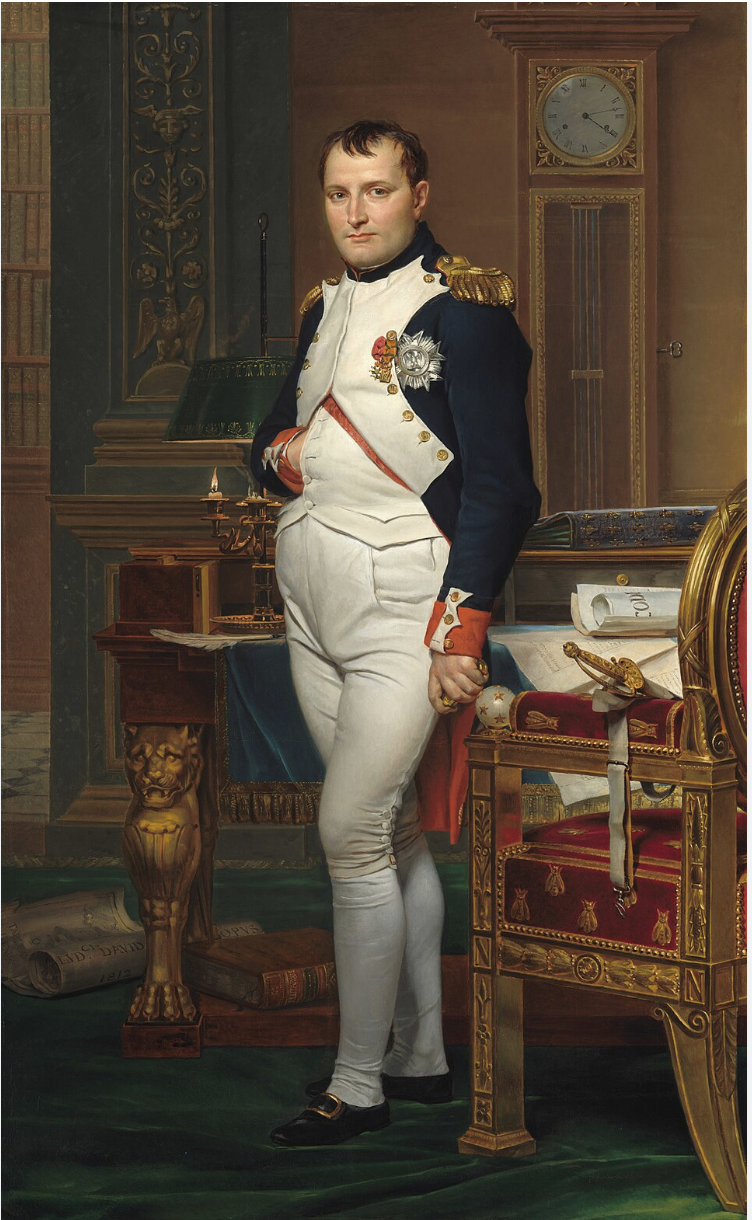
The Emperor Napoleon in His Study
David
1812
painted during the time her was emperor but is reflecting on when he was consulate
NB was pleased and had copies made
Symbols
fleur de lis
bees - symbol of royalty and empire
clock shows past midnight, pm because candle
uniform of the military guard
rolled documents in the back - COD - civil code of the French which was 1704 - during consulate time
the medals indicate the legion of honours
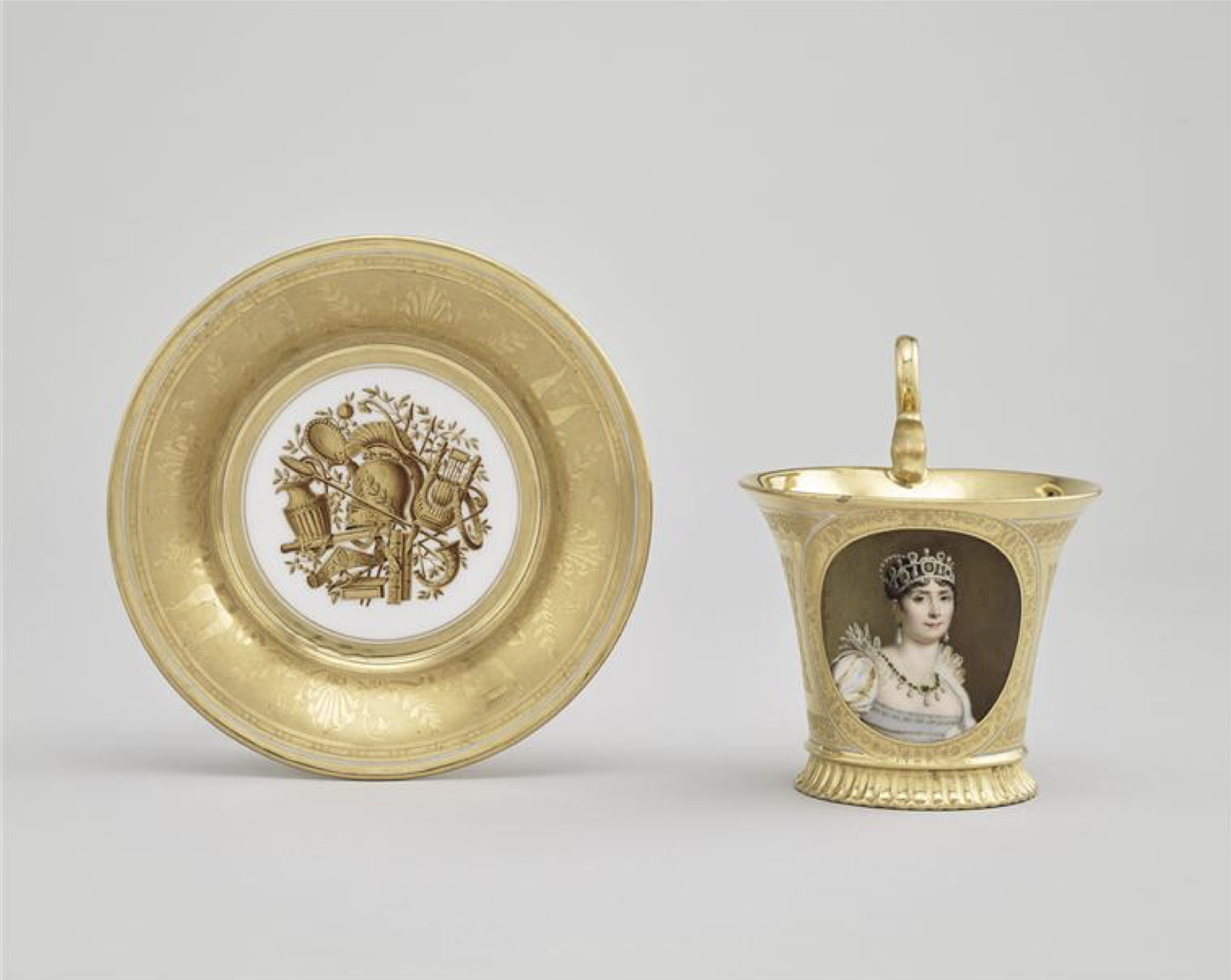
Portrait of Empress Josephine
1810
Jaquotot
a Sevres
Wife of Napoleon
did not birth him children and he eventually divorced her
notes on divorce and the changes in 1804 with the COD
The First Empire
1804-1814
Napoleon
Legion of Honour
1802
New recognition system
under the time of the consulate
was designed for civil and military services
no longer hereditary/nobilitly based
1804 Divorce change
women no longer had any power
could only file for divorce under very special circumstance
abuse, or if husband was adulterous and brought the new women to live into the home
women could no longer claim paternity
legal protection of men
general fear of female sexuality
adultery was punishable
men were fined, women were jailed
children were often abandoned
Civil Code of The French
1804 - during the consulate half
replaced fuedal/royal law
every person is a subject to the law
includes the ruler
Legislation on divorce
1792
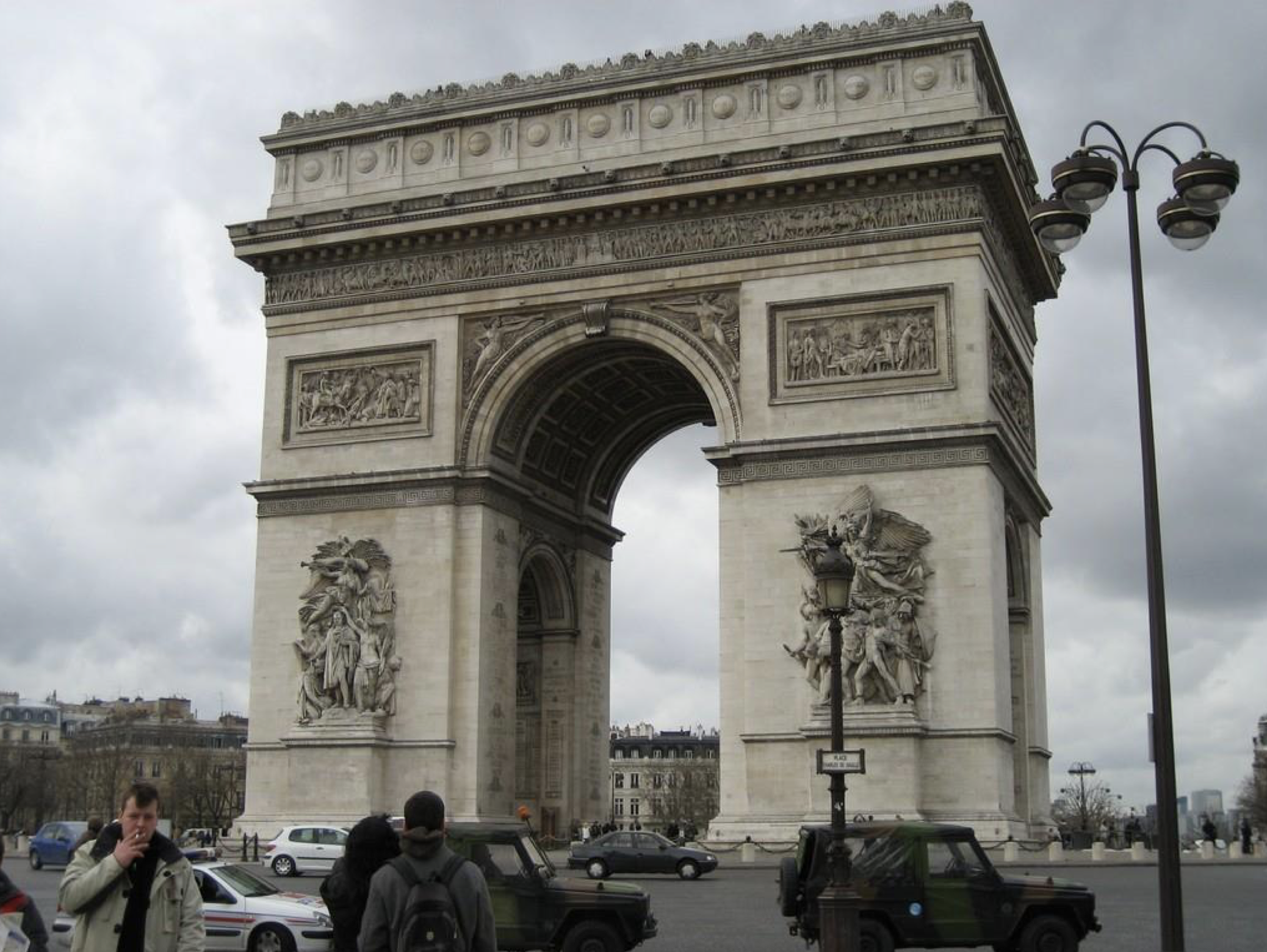
NB set out to improve architecture (didn’t really succeed)- focused more on military success
started building the arch de triumph 1806
wanted to build a structure to be on route the procession for the great army
triumphal arch - another roman feature
down the Champs Élysées
connects to louvre, guilltine place
presentation of political power
construction stopped in 1814 when he was expelled
he contributed to the creation of cultural memory
transcends NB’s losses
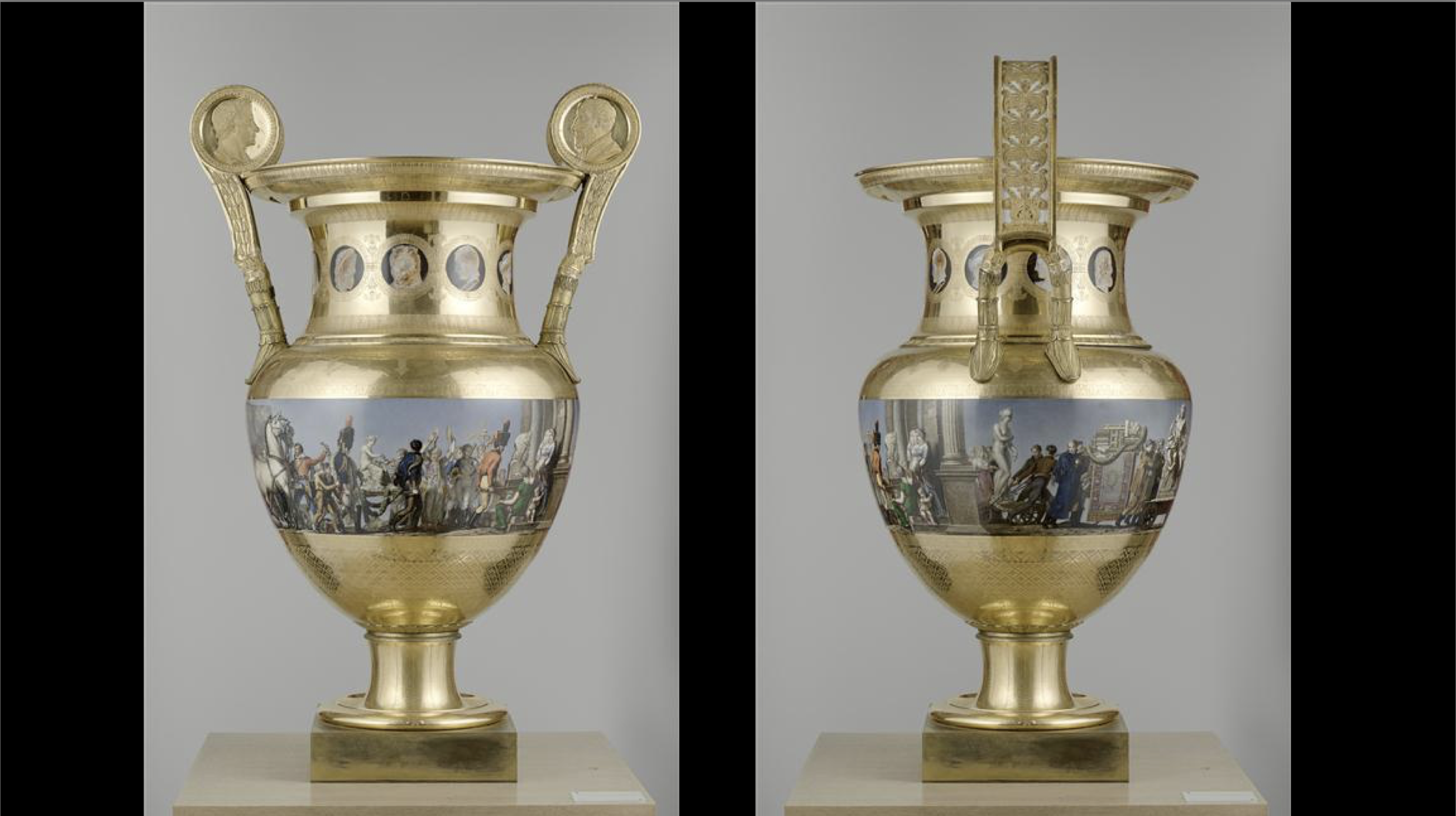
Arrival of the Italian artworks
1796
Beranger
sevres
narrative scenes and how they connect with the treaty of tolentino
a treaty struck with the pope
took manuscripts, art, sculptures, etc